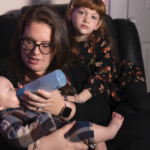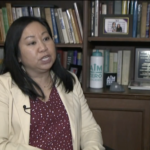
Can you imagine what it would be like to feel no fear regardless of circumstance? I am not referring to being courageous or resolute in the face of grave danger. Rather, having no physiological response to perceived threats to one’s survival. Would you like to have that capacity? Sounds like having superpowers minus the ability to bend steel with your bare hands or leap tall buildings in a single bound.
Believe it or not, there is a condition, Urbach-Wiethe (UW) disease, that creates the no-fear effect.
In UW disease, which is incredibly rare, calcium deposits take over the amygdala, the part of the brain that is responsible for emotion and survival instincts. The result is the complete absence of fear.
A few years ago, Washington Post reporter Rachel Feltman wrote an article titled, “Meet the Woman Who Can’t Feel Fear.” She wrote about a woman that she refers to as SM who has been diagnosed with UW disease.
Feltman was able to get an interview with SM, who shared a personal example of what it is like to feel no fear. “I was walking to the store, and I saw this man on a park bench. He said, ‘Come here please.’ So I went over to him. I said, ‘What do you need?’ He grabbed me by the shirt, and he held a knife to my throat and told me he was going to cut me. I told him, ‘Go ahead and cut me.’ And I said, “I’ll be coming back, and I’ll hunt you [down].’ I wasn’t afraid. And for some reason, he let me go. And I went home.”
SM also reported being held at gunpoint on two occasions and said she did not feel the need to contact the police. After all of these incidents, she experienced no signs of trauma. She said that none of the threats to her life bothered her in the slightest.
It’s not that SM didn’t realize the grave danger she was in. She is intelligent enough to know that being held at gunpoint could lead to her death, but she lacks the acute stress response that everyone else feels when they are exposed to danger.
How would someone with UW—if they were a parent—respond to a threat of danger to their child? I imagine that if SM were a parent, when a fight-or-flight response fails, she would rely on her intelligence and her fearlessness to protect her child.
Reading about UW disease made me wonder: Are there other human conditions in which there is a profound absence of fear?
For example, people with personalities that are characterized by antisocial behavior tend to have shallow emotions and a weak conscience. Such people don’t experience anxiety or sadness like most of us do, but that doesn’t make them immune to fear in the face of mortal danger.
What they do seem immune to is shame.
There have been only about 400 cases of Urbach-Wiethe disease since it was first discovered in 1908. So there are not many people walking the earth today who experience a complete lack of fear. As for a lack of shame, I’m sad to say that it seems to be rapidly on the rise.
Thousands of children have been ripped from their mothers’ arms at the border. Many asylum seekers are living in inhumane conditions, lacking basics like food and water. Journalists, some of whom risk their lives to expose criminal and/or immoral behaviors in their search for truth, are being denigrated, threatened and even killed. Regulations protecting us and our children from toxins in the environment are being tossed out at an alarming rate.
I imagine you have other shameful things to add to that list.
For the majority of us who feel both fear and shame, it’s time to speak out—even if it can be a scary thing to do. It would be a real shame if we remain silent.
Andrew Malekoff is the Executive Director of North Shore Child & Family Guidance Center. To find out more, visit www.northshorechildguidance.org.













